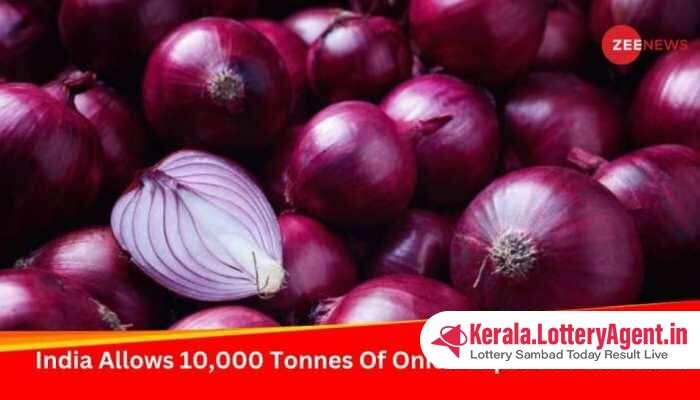
In a strategic move by the Indian government, 10,000 tonnes of onions have been allocated for export to both Sri Lanka and the United Arab Emirates (UAE). This directive was dispatched by the Directorate General of Foreign Trade (DGFT) in a recent notification, despite the running embargo on onion exports in the country since December 2023.
This new ratification supplements an additional 10,000 tonnes for the UAE, following the earlier sanction of 24,400 tonnes. In light of a similar provision, India had previously authorized the export of 50,000 tonnes of onions to Bangladesh in March. Consequently, the cumulative quantum of India’s onion exports has surged to 99,160 tonnes.
The export blockade initially set out in early December 2023, to span until March 2024, remains in force, with future exports contingent upon the central government’s discernment and on the basis of entreaties from importing nations.
However, the central administration has posed an exemption for the specialized ‘Bangalore rose onion’ variant, rendering it exempt from export duties, although contingently. Exporters aiming to ship this variety must first attain a substantiating certificate from the Horticulture Commissioner of the Government of Karnataka, ascertaining the fidelity of the shipment in terms of type and size.
The embargo measures took their roots amidst a tightening onion price hike which prompted the government to mitigate the impact by distributing onions from its strategic reserves. Previously, the Indian government laid plans to fortify 3 lakh tonnes of onions in buffer stock for the 2023-24 season. This planned reserve surpasses the 2.51 lakh tonnes stockpiled in the previous season of 2022-23.
Sri Lanka and the UAE, nations imperative to India’s export nexus, will see amelioration in their supply chains through this allocation. The decision embodies a delicate balance between domestic price stability and the commitment to international trade obligations.
The persistence of prohibition on onion exports until further notice from the central government signals a conservative approach in managing essential commodities. The curative measure through selective export permissions demonstrates a maneuver to prevent domestic prices from breaching the consumer pain threshold while also delivering on international commitments.
In the grander overview, agriculture, and particularly onion cultivation, plays a pivotal role in India’s agrarian-based economy. Therefore, the decisions surrounding export bans or approvals are quintessential in managing trade dynamics and domestic market equilibriums.
While India continues to navigate through supply and demand intricacies domestically, it also acknowledges the profound impact these decisions have on bilateral relationships. The most recent facilitation for Sri Lanka and the UAE not only serves as a gesture of goodwill but also as a nod towards maintaining robust trade continuities in the face of extensive domestic constraints.
The issuance of this notification by DGFT comes at a time when the government is working assiduously to streamline supply chains rattled by global disruptions and localized inflationary pressures. The strategic release of onions from reserves and their export authorizations reflect the government’s keen attempts to strike a balance between the domestic market’s stability and its international trade accords.
As these directives take effect, both recipients, Sri Lanka and the UAE, look forward to easing their supply shortfalls, while Indian policymakers continue to calibrate their strategies in consonance with the dual objectives of both stabilizing local market prices and fortifying the agricultural export sector.












